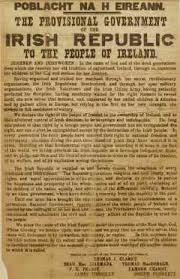The Ambridge Socialist April 5th
CONTACT KEITH FLETT 07803 167266 the real Borsetshire Echo: 65 years of class struggle in Ambridge
Special Edition
Helen: Guardian Editorial poses key question on cuts to women’s support services
The Guardian has posed a key question for the Archers in its Editorial on 5th April (below).
The story line on domestic abuse involving Helen Archer and ‘monster’ Rob Titchener has been well written and well-acted.
The latest twist to the story however runs the risk of departing from a long period of careful story telling into the arguably over dramatic and unrealistic.
The Guardian suggests that a key issue is whether the Archers can grapple with the realities of reductions in women’s support services and the impact this has had on those suffering abuse.
In other words, can the Archers grapple with cuts? Well David Cameron’s mother has come out against cuts to services…
Guardian Editorial 5th April
Whether you find the long-running BBC Radio 4 everyday tale of country folk, The Archers, compelling listening or the apogee of smug, the domestic abuse storyline between Helen and her bullying, manipulative husband, Rob, which reached a violent climax on Sunday night, has been all too illuminating about the way an abusive relationship develops. Listeners – some of whom resented its intrusion into their daily escape to a rural idyll – were left with a vivid and authentic impression of how an intelligent, competent woman can be reduced to helplessness by a partner who sets out to control her.
On Sunday night, after months of incremental development where Helen only slowly came to understand what was being done to her, the plot rapidly escalated into violence. To some, this felt out of tune with the painstaking authenticity of the earlier storyline. In particular, the decision to make Helen the instigator of the violence that night, rather than Rob, in defiance of the weight of real evidence, seemed a betrayal of its earlier integrity.
The Archers team has been working on this story, helped by women’s support organisations like Women’s Aid and Refuge, for two and a half years. Maybe programme chiefs panicked that too many of the regular audience were getting nightmares. More likely, letting the plot develop in a way that was truer to most victims’ experience might have meant Helen seeking safety in a refuge that had been forced to close because of cuts to local government spending. The programme prides itself on tackling the big social issues like domestic abuse, Alzheimer’s or, a generation ago, abortion. But it never, ever, strays into contemporary politics.
In the real world, support for women’s organisations has not only been whittled away by squeezed town hall budgets, it has also been undermined by what academics say is a misunderstanding of evidence by the Office for National Statistics. According to recent research, the ONS counts violent and sexual offences in a way that significantly underestimates how women are affected. So service provision is reduced; and, because by their nature refuges and the support services they provide have to be discreet, cuts tend not to be noticed by the wider public. On The Archers, the plot is still developing. It’s not too late (at the time of writing) for it to recognise how vital women’s support services are – and how thin on the ground they have become.
The Ambridge Socialist publishes weekly on-line after the Omnibus edition of the Archers on a Sunday morning
In forthcoming issues of the Ambridge Socialist:
Why the Archers is not the new Eastenders
Why Titchener should face trial






